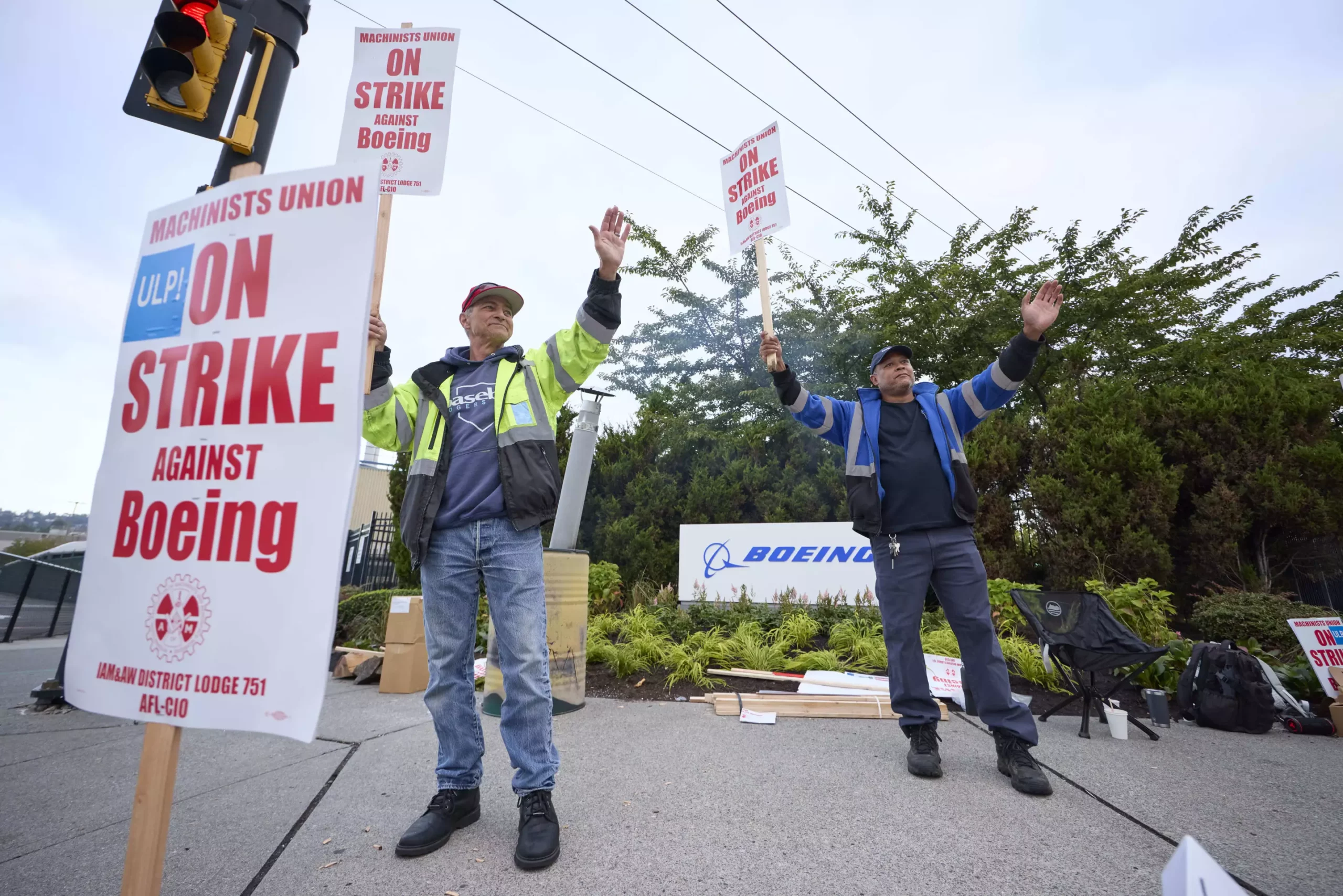In a significant display of solidarity and discontent, around 33,000 blue-collar workers from Boeing opted to walk off the job recently, sending ripples through the aerospace industry. Rejecting a proposed contract that would have granted them a 25% wage increase over four years, these machinists instead took to the picket lines, prioritizing their demands for more just compensation and working conditions over temporary financial gains. Although the immediate operations of Boeing will not be impeded in terms of airline flight schedules, the strike will fundamentally affect the production of iconic aircraft such as the 737 Max, an emblem of Boeing’s achievements but also of its troubling recent history.
The rejection of the contract is not an isolated incident but part of a broader narrative reflecting the challenges faced by many labor forces in the current economic climate. As inflation and the cost of living rise sharply, workers are increasingly willing to take a stand for fair wages that align with their personal and community needs, illuminating a growing trend of labor activism across various sectors.
The sentiment among the machinists is palpable, with many stating that the proposed raises fell far short of what is necessary to buffer against rising living costs in the Pacific Northwest. For instance, John Olson, a seasoned toolmaker, revealed that his pay only saw a meager 2% increase over six years, rendering the contract’s financial increments nearly irrelevant amidst rampant inflation. The workers are acutely aware of the value they provide to Boeing, and they are not afraid to voice their dissatisfaction regarding what they perceive as inadequate compensation, especially when juxtaposed against the rising expenses of everyday life.
The union members have been vocal about their frustration, condemning the contract not merely for its numerical inadequacies but for what they see as a lack of respect for their contributions. Signs at the picket lines echoed feelings of betrayal and economic injustice, highlighted by slogans that criticized both the contract terms and corporate negligence towards employees’ needs. This discontent encompasses a collective memory of sacrifices made by the workforce, such as concessions on pensions a decade ago, which many believe should be acknowledged and rectified in current contract negotiations.
Boeing’s response to the strike reflects a company caught between its financial obligations and operational recovery. The aerospace giant, already grappling with extensive debt and a tarnished reputation, has expressed disappointment at the rejection of the latest contract, highlighting its commitment to re-establishing relations with employees. However, it remains to be seen how effective these measures will be in placating a workforce that feels undervalued.
CFO Brian West noted that the strike could have severe fiscal repercussions, as delivery payments from airlines significantly contribute to the company’s revenues—payments that are now stalled during the labor dispute. Previous labor actions have demonstrated the detrimental financial impact of strikes on Boeing, with estimates suggesting that prolonged cessation of operations could cost the company billions. The tension posed by the current strike underscores an urgent need for the company to navigate negotiations carefully to avoid exacerbating its already precarious financial state.
The future of Boeing amidst this labor dispute raises essential questions about corporate accountability and the sustainability of its business practices. New CEO Kelly Ortberg’s proactive approach to engaging with employees may signal a shift in corporate philosophy; however, genuine change remains contingent upon tangible concessions that mirror workers’ current economic realities.
Furthermore, the broader implications of this strike extend beyond Boeing’s operational woes. It touches upon significant labor issues that resonate across various industries, heralding a potential resurgence of organized labor movements. As workers increasingly demand fair wages and respect for their skills, the Boeing strike could serve as an emblematic case study for other corporations grappling with similar employee discontent.
Ultimately, the future of Boeing’s workforce dynamics, financial stability, and operational capability hinges on the resolution of this labor dispute. The machinations of contract negotiations will not only determine the trajectory of Boeing’s recovery but also set a precedent for how companies engage with their employees in an economy dictated by rising costs and heightened worker activism. The stakes are undeniably high, not just for Boeing but for the broader landscape of labor relations in America. The outcome will be closely watched as other industries observe how one of the world’s largest aerospace manufacturers navigates this critical juncture.

